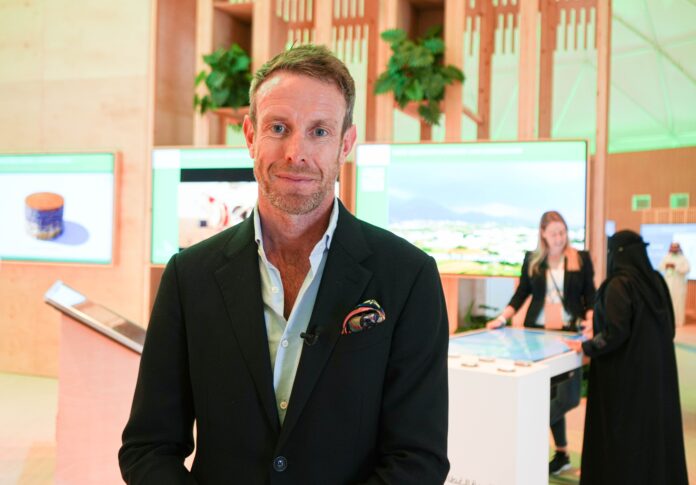SHARM EL-SHEIKH: Saudi Arabia is perfectly poised to lead the world in green hydrogen production and drive a consumption model that thrives on reusing and recycling practices, said a senior PwC official.
Speaking to Arab News on the sidelines of the UN Climate Change Conference, Stephen Anderson, Middle East strategy and markets leader at PwC, said: “There is an opportunity for Saudi to lead the world on pioneering hydrogen and circular economies.”
The Kingdom has already taken the first step globally, as Saudi Arabian Oil Co. and Saudi Basic Industries Corp. announced the world’s first blue ammonia shipment to Japan in 2020.
Furthermore, Saudi Arabia is building a $5 billion green hydrogen project in NEOM, powered by renewable energy, to supply 650 tons of carbon-free hydrogen daily.
As part of its effort to create a greener future, the Saudi Green Initiative is also establishing a regional carbon capture and storage center, an early storm warning center and cloud-seeding programs.
That is not all. Endorsing Saudi Arabia’s environmental commitment, Crown Prince Mohammed bin Salman announced the Kingdom would contribute $2.5 billion to the Middle East Green Initiative over the next 10 years and host its headquarters.
“The announcement around the funding was fundamental, as there is a significant challenge across the Middle East,” said PwC’s Anderson.
According to him, the Gulf countries must tackle climate change, as the area is highly exposed to climate threats, including high temperatures and water scarcity.
“There are a lot of threats from the impact of climate change on Saudi and the broader GCC (Gulf Cooperation Council) in terms of temperature, water scarcity and biodiversity,” he said.
“Saudi Arabia faces significant challenges in climate perspectives, but equally, there is a huge opportunity that we are looking to support,” he said.
In 2020, PwC committed to reducing total greenhouse gas emissions by 50 percent, in absolute terms, by 2030.
“We already managed to have all of our electricity coming from renewable energy,” Anderson said.

